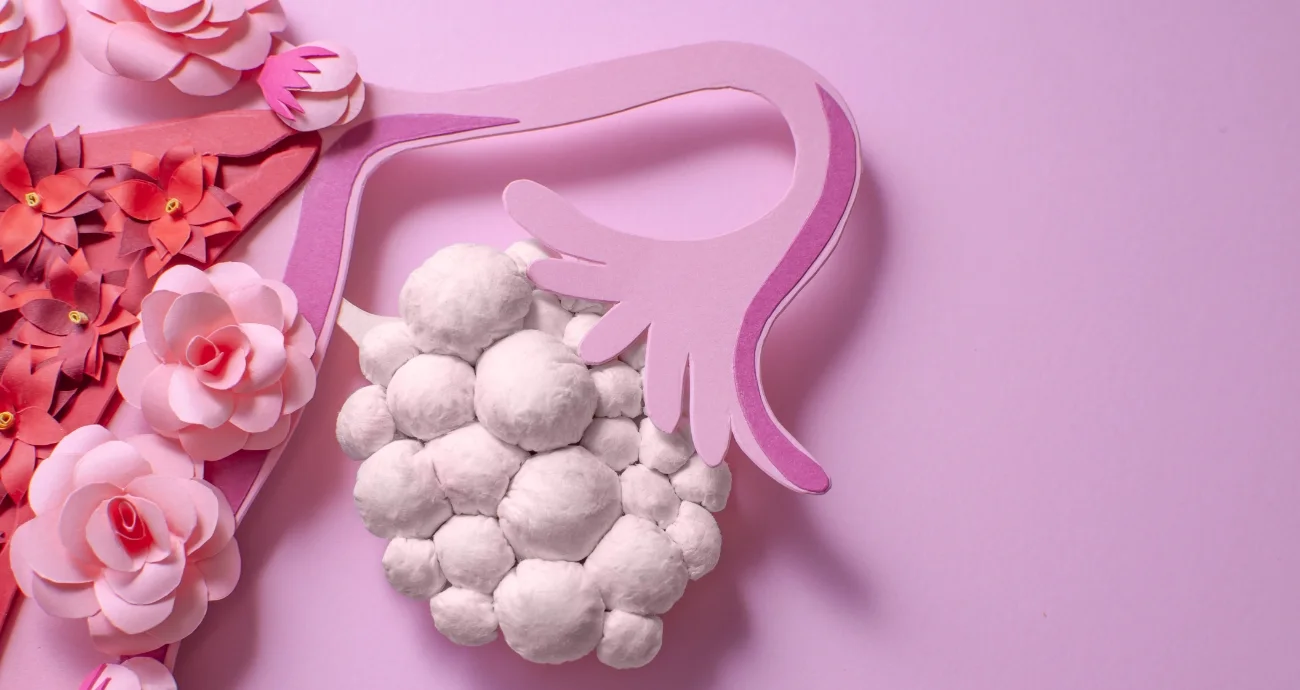Hot Flashes During Periods: Why They Happpen & What To Do?

Does having hot flashes during your period when you’re in your 20s send you in a downward spiral? That’s mostly because when we hear the term ‘hot flashes’, most people automatically relate it to menopause. However, it is possible as well as normal to have hot flashes before and during periods too. Some women experience hot flashes before periods as it could be one of the many premenstrual syndrome (PMS) symptoms. In this article, we will understand why some women have hot flashes before and during periods.
What are hot flashes?
A hot flash is a sudden and intense wave of heat that you experience in your body, especially across your neck, face, and upper torso.
When your body temperature rises, for any given reason, your brain senses it. It then signals blood vessels all over the body to get bigger, or dilate, in an attempt to cool your body. This causes flushing of the skin, which further leads to sweating during the hot flash. The moisture from sweating, then leads to chills or damp clothing. This feeling can last anywhere from a few seconds to minutes.
Generally, hot flashes are not something to be concerned about unless it is accompanied by other symptoms. Then, a thorough diagnosis will help identify any underlying medical problem.
Here are some of the common symptoms one would experience when you experience hot flashes:
- sudden sensation of heat in the chest, neck, or face
- flushed skin
- rapid heartbeat
- sweating
- anxiety
- chills as the hot flash passes
Why do you get hot flashes before periods?
Some people experience hot flashes before period and it is completely normal. Hot flashes, typically, occur due to changing hormone levels in your body. When you enter or are entering menopause, the levels of both estrogen and progesterone decline. This is the major reason why women commonly experience hot flashes in perimenopause or menopause.
During the menstrual cycle, your body undergoes hormonal changes in the same way. These fluctuations are the reason why you experience premenstrual syndrome (PMS) symptoms. And for some people who are in their 20s or 30s, hot flashes are one of them
Causes of hot flashes during period
Here are some of the common causes for having hot flashes during period.
1. Perimenopause
The period before menopause, or that leads up to it is known as perimenopause. It is common for people to get their periods during perimenopause, although they tend to become irregular or have different patterns every month.
Perimenopause is a phase that most women experience during their forties and can last for up to 10 years. People who are in perimenopause often experience hot flashes, especially night sweats during periods. Some of its other symptoms are:
- Difficulty in sleeping
- Headaches
- Mood changes
- Vaginal dryness.

2. Premenstrual dysphoric disorder
A more serious form of premenstrual syndrome, premenstrual dysphoric disorder (PMDD) causes emotional symptoms such as feelings of depression, anxiety, or hopelessness, as well as physical symptoms, including nausea or vomiting, swelling, skin irritation, pain, and hot flashes before period. Generally, the symptoms of PMDD occur a week before a period. Note that a woman can have PMDD at any time the reproductive years.
3. Premature ovarian insufficiency
During the menstrual cycle, the ovaries release an egg. This release of eggs by the ovaries is for a finite number of times during a person’s life.
Premature ovarian insufficiency (POI) is a condition that affects a person’s ovaries. With POI, a person’s ovaries stop releasing eggs or release them less often. A person can develop POI at any age, and it can sometimes cause symptoms much like menopause, including hot flashes.
4. Other reasons for hot flashes during a period
Here are other causes for hot flashes during period:
- Hyperthyroidism - When the thyroid gland in your body produces too much thyroid hormone, it leads to hyperthyroidism. This hormone is responsible for many bodily functions, including body temperature, and issues with the thyroid may cause hot flashes.
- Medication - Those who are under medication that affect hormone levels may experience hot flashes.
- Stress - Stress and anxiety can cause hot flashes, a racing heart, symptoms of panic, and flushing in the face or neck.
While you look for ways to manage hot flashes during periods, it is equally important to make sure you have the right products to manage your period. Get good quality period products like the range of Always’ sanitary pads. Try the Always Platinum Ultra Thin pads which are extra-long and powered with odour neutralising technology so that you always stay fresh and clean. It offers a combination of innovative micro-cushions and an ultra-absorbent core which instantly locks in the wetness.
Those who prefer using tampons can explore Always’ Tampax which are innovatively designed to offer you the best protection and safety, no matter the flow. Try the Tampax Cardboard tampons which are equipped with quick-absorption channels. These also come with a cardboard applicator to assure you leak-free period protection for up to eight hours.

Managing hot flashes during period
Hot flashes are not dangerous and hence most medical professionals would suggest ways to manage the symptoms.
Some methods to manage hot flashes before or during periods are:
1. Medication -
Certain medication such as hormone replacements or antidepressants can help some people in managing hot flashes. Make sure to consult a doctor before you go ahead with any medication.
2. Lifestyle changes -
Making changes in your diet and other lifestyle elements can help:
- Reduce the intake of caffeine, alcohol, spicy foods, and chocolate. These foods and beverages are known to trigger hot flashes and could also worsen it.
- Consider quitting smoking as it may increase the frequency of hot flashes and could also make them more severe.
- Practicing relaxation techniques such as deep breathing, yoga, and meditation will help you stay more relaxed. Although it may not directly impact your hot flashes, but they enable you to effectively manage it.
- Drink plenty of water to keep yourself hydrated. Consider having cool water with you on days when you feel a hot flash is coming on.
3. Stay cool -
This can help you reduce the number of hot flashes you have and its intensity. Some ways to cool down include:
- Eating foods that are cool such as apples, bananas, spinach, and broccoli among others.
- Drinking cool drinks.
- If you live in a cold region, consider wearing layers of clothes so that you can take off a layer when you have a hot flash. Those who are living in warmer temperatures can opt to wear light, cotton clothes that help you stay cool and dry.
- Using a fan to stay cool.
- Having a chilled towel in the refrigerator to place on your neck or face when having a hot flash.

When to see a doctor
Typically, a hot flash is not a serious medical condition and hence requires no medical intervention. However, in rare cases, it could also mean there is an underlying condition. Hence, if you’re having frequent episodes of hot flashes in every cycle, it is best to speak to a doctor.
Takeaway
Hot flashes during a period are indeed uncomfortable especially when you’re outdoors. However, by managing these symptoms you can reduce the frequency of hot flashes.
Disclaimer:
Please note the date of last review or update on all articles. No content on this site, regardless of date, should ever be used as a substitute for direct medical advice, diagnosis or treatment from your doctor or other qualified clinician. Always is committed to ensuring that all of our products meet rigorous safety standards; Always pads prioritize safety, protection and comfort of its consumers.




